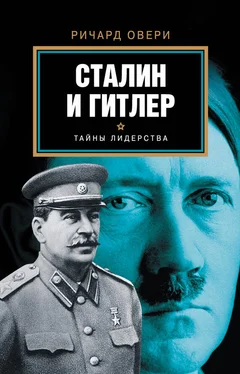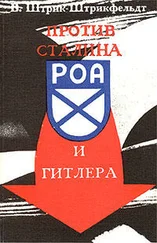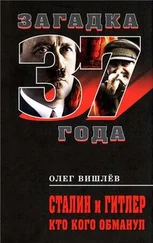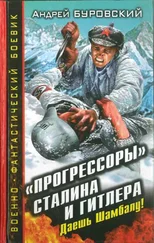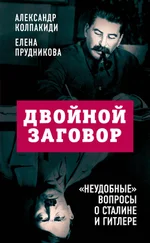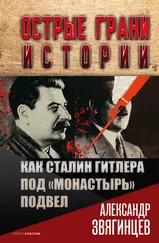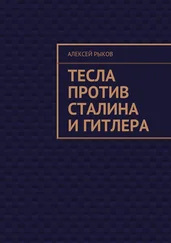Haven, Conn., 1997).
Berschel, H. Bürokratie und Terror: Das Judenreferat der Gestapo Düsseldorf 1935–1945 (Essen, 2001).
Berthold, W. Die 42 Attentate auf Adolf Hitler (Wiesbaden, 2000).
Berton, K. Moscow: An Architectural History (London, 1977).
Bessel, R. Germany after the First World War (Oxford, 1993).
Bessel, R. (ed.) Life in the Third Reich (Oxford, 2001).
Beyerchen, A. ‘Rational Means and Irrational Ends. Thoughts on the Technology of Racism in the Third Reich’, Central European History, 30 (1997), pp. 386–440.
Bezyminsky, L. A. ‘Stalins Rede vom 5. Mai 1941 – neu dokumentiert’, in G. R. Ueberschär, and L. A. Bezyminsky (eds) Der deutsche Angriff auf die Sowjetunion 1941 (Darmstadt, 1998).
Biesemann, J. Das Ermächtigungsgesetz als Grundlage der Gesetzgebung im nationalsozialistischen Staat (Münster, 1985).
Bilas, I. ‘Le KGB et la destruction de l’église catholique ukrainienne’, L’est européen, 31 (1993), pp. 50–63.
Billington, J. H. The Face of Russia (New York, 1998).
Birken, L. Hitler as Philosophe: Remnants of the Enlightenment in National Socialism (Westport, Conn., 1995).
Birkenfeld, W. ‘Stalin als Wirtschaftsplaner Hitlers’, Vierteljahrshefte für Zeitgeschichte, 51 (1966), pp.???
Blakely, A. Russia and the Negro (Washington, DC, 1986).
Blank, S. ‘Soviet Institutional Development during NEP: A Prelude to Stalin’, Russian History, 9 (1982), pp. 325–46.
Blasius, D. Carl Schmitt: Preussischer Staatsrat im Hitlers Reich (Göttingen, 2001).
Bleuel, P. Strength through Joy: Sex and Society in Nazi Germany (London, 1973).
Bloch, M. Ribbentrop (London, 1992).
Boas, J. Boulevard des misères: The Story of Transit Camp Westerbork (Hamden, Conn., 1985).
Bociorkiw, B. R. ‘Religion and Atheism in Soviet Society’, in R. H. Marshall Aspects of Religion in the Soviet Union 1917–1967 (Chicago, 1971).
Bock, G. ‘Racism and Sexism in Nazi Germany: Motherhood, Compulsory Sterilization and the State’, in R. Bridenthal, A. Grossmann and M. Kaplan (eds) When Biology became Destiny: Women in Weimar Germany and Nazi Germany (New York, 1984).
Bonnell, V. Iconography of Power: Soviet Political Posters under Lenin and Stalin (Berkeley, Calif., 1997).
Boog, H. etal. Der Angriff auf die Sowjetunion (Stuttgart, 1983).
Bordiugov, G. A. ‘The Bolsheviks and the National Banner’, Russian Studies in History, 39 (2000), pp. 79–90.
Bordiugov, G. A. ‘The Transformation of the Policy of Extraordinary Measures into a Permanent System of Government’, in N.
Rosenfeldt, B. Jensen and E. Kulavig (eds) Mechanisms of Power in the Soviet Union (London, 2000), pp. 122–44.
Boshyk, Y. (ed.) Ukraine During World War II: History and its Aftermath (Edmonton, Alberta, 1986).
Boterbloem, K. Life and Death under Stalin: Kalinin Province, 1945–1953 (Montreal, 1999).
Bougai, N. The Deportation of Peoples in the Soviet Union (New York, 1996).
Bourdeaux, M. Opium of the People: the Christian Religion in the USSR (London, 1965).
Bowlt, J. and Drutt, M. (eds) Amazons of the Avant-Garde (Royal Academy, London, 1999).
Bracher, K. D. The German Dictatorship: the Origins, Structure, and Effects of National Socialism (London, 1971).
Brahm, H. (ed.) Opposition in der Sowjetunion (Düsseldorf, 1972).
Brandenberger, D. National Bolshevism: Stalinist Mass Culture and the Formation of Modern Russian National Identity 1931–1956 (Cambridge, Mass., 2002).
Brandenberger, D. and Dubrovsky, A. ‘“The People need a Tsar”: the Emergence of National Bolshevism as Stalinist Ideology 1931–1941’, Europe – Asia Studies, 50 (1998), pp. 873–92.
Brechtefeld, J. Mitteleuropa and German Politics: 1848 to the Present (London, 1996).
Brenner, M. After the Holocaust: Rebuilding Jewish Lives in Postwar Germany (Princeton, NJ, 1997).
Bridenthal, R., Grossmann, A. and Kaplan, M. (eds) When Biology became Destiny: Women in Weimar Germany and Nazi Germany (New York, 1984).
Brooks, J. ‘Socialist Realism in Pravda: Read All About It!’, Slavic Review, 53 (1994), pp. 973–91.
Brossat, A. (ed.) Ozerlag, 1937–1964. Le Système du Goulag: traces perdues, mémoires reveilles d’un camp stalinien (Paris, 1991).
Broszat, M. Hitler and the Collapse of Weimar Germany (Leamington Spa, 1987).
Broszat, M. The Hitler State: the foundation and development of the internal structure of the Third Reich (London, 1981).
Brotherstone, T. and Dukes, P. (eds) The Trotsky Reappraisal (Edinburgh, 1992).
Browder, G. C. Foundations of the Nazi Police State: the Formation of Sipo and SD (Lexington, Ky, 1990).
Browning, C. ‘Hitler and the Euphoria of Victory: the Path to the Final Solution’, in D. Cesarani (ed.) The Final Solution: Origins and Implementation (London, 1994), pp. 137–47.
Browning, C. Ordinary Men: Reserve Police Battalion 101 and the Final Solution (Cambridge, 1992).
Browning, C. The Path to Genocide: Essays on Launching the Final Solution (Cambridge, 1992).
Brumfi eld, W. C. A History of Russian Architecture (Cambridge, 1993).
Brunner, G. Das Parteistatut der KPdSU 1903–1961 (Cologne, 1965).
Brustein. W. The Logic of Evil: The Social Origins of the Nazi Party 1925–1933 (New Haven, Conn., 1996).
Buckley, M. Women and Ideology in the Soviet Union (New York, 1989).
Bullock, A. Hitler and Stalin: Parallel Lives (London, 1991).
Burbank, J. ‘Lenin and the Law in Revolutionary Russia’, Slavic Review, 54 (1995) pp. 23–44.
Burden, H. T. The Nuremberg Party Rallies: 1923–39 (London, 1967).
Burleigh, M. Death and Deliverance: ‘Euthanasia’ in Germany 1900–1945 (Cambridge, 1994).
Burleigh, M. Ethics and Extermination: Refl ections on Nazi Genocide (Cambridge, 1997).
Burleigh, M. ‘National Socialism as a Political Religion’, Totalitarian Movements and Political Religions, 1 (2000), pp. 1–26.
Burleigh, M. The Third Reich: a New History (London, 2000).
Burleigh, M. and Wippermann, W. The Racial State: Germany 1933–1945 (Cambridge, 1991).
Butler, R. An Illustrated History of the Gestapo (London, 1992).
Butler, W. E. Soviet Law (2nd edn, London, 1988).
Campbell, B. The SA Generals and the Rise of Nazism (Lexington, Ky, 1998).
Caplan, J. ‘National Socialism and the Theory of the State’, in T. Childers, and J. Caplan (eds) Reevaluating the Third Reich (New
York, 1993), pp. 98–113.
Carlebach, E. Tote auf Urlaub: Kommunist in Deutschland, Dachau und Buchenwald 1937–1945 (Bonn, 1995).
Caroe, O. Soviet Empire: the Turks of Central Asia and Stalinism (London, 1967).
Carsten, F. L. The German Workers and the Nazis (Aldershot, 1995).
Cary, N. D. ‘Antisemitism, Everyday Life, and the Devastation of Public Morals in Nazi Germany’, Central European History, 55 (2002), pp. 551–89.
Cassinelli, C. W. Total Revolution: A Comparative Study of Germany under Hitler, the Soviet Union under Stalin and China under Mao (Santa Barbara, Calif., 1976).
Chapman, J. G. Real Wages in Soviet Russia since 1928 (Cambridge, Mass., 1963).
Chegodneva, M. ‘Mass Culture and Socialist Realism’, Russian Studies in History, 42 (2003), pp. 49–65.
Chichlo, B. ‘Histoire de la formation des territoires autonomes chez les peoples turco-mongols de sibérie’, Cahiers du monde russe, 28 (1987), pp. 361–402.
Chor’kov, A. G. ‘The Red Army during the Initial Phase of the Great Patriotic War’, in B. Wegner (ed.) From Peace to War: Germany,
Soviet Russia and the World 1939–1941 (Providence, RI, 1997).
Ciszek, W. and Flaherty, D. With God in Russia (London, 1964).
Clark, K. ‘Engineers of Human Souls in an Age of Industrialization: Changing Cultural Models, 1929–31’, in W. Rosenberg and L.
Читать дальше
Конец ознакомительного отрывка
Купить книгу
